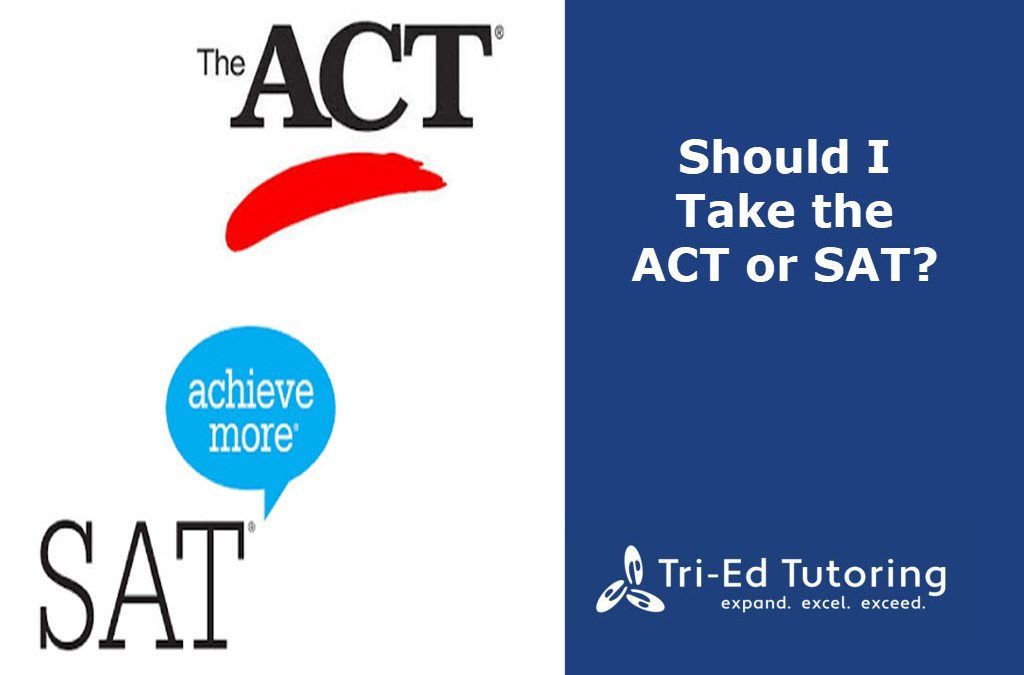One of the questions we are asked most frequently is “should I take the ACT”?
I always tell juniors that they should try both the SAT and the ACT. Even if you do not take an official test, you should at least take a practice test of each to get an idea of the differences and see which test showcases your strengths better. This does not mean that you need or should send both SAT & ACT scores to college. Since both tests are meant to test a student’s college readiness, one set of favorable scores is all you need.
You can take a practice SAT or a practice ACT here.
Historically, the test that you took was determined by the schools in which you planned to apply—East coast and California schools preferred the SAT while mid-West schools preferred the ACT. Now, schools use either test for admissions with no preference. For an in-depth timeline of the history and evolution of the tests, check out this interesting blog.
Who tends to do better on the ACT?
The primary difference between the ACT and SAT is that the ACT covers more content but the questions are asked in a way that students often find more familiar or more straightforward. For example, the ACT math section includes trigonometry, imaginary numbers, logarithms, and matrices. These topics are not found on the SAT. However, the way that the questions are asked on the ACT look more like what students would see on a math test in school. For this reason, the ACT often favors students that have taken a rigorous course load in school but do not perform well on tests that require a lot of logic and reasoning skills like the SAT.
There are also key differences between the reading and math sections of each test. The ACT reading section focuses on details from the passage and speed, whereas the SAT reading questions target inferences within the passage. A portion of the SAT math questions must be answered without the use of a calculator and a little under a quarter of the questions are fill-in the blank. The entire ACT math section can be answered using a calculator and all math questions are multiple choice.
Who tends to do better on the SAT?
The SAT offers more time per question on the reading and math sections. On the SAT, students have 74 seconds to answer each reading question and 84 seconds to answer each math question. The ACT reading section allots 52.5 seconds per reading question and 60 seconds per math question. That’s why students that have a lot of difficulty with time management on tests often have more difficulty on the ACT.
Also, as mentioned, the ACT does have more content. Students that have taken a less rigorous curriculum may find the ACT more challenging. The ACT also includes a science section. The primary skills needed to be successful on this section are a basic understanding of experimental design and the ability to interpret data tables and graphs. This does not require a lot of general science knowledge but it can be challenging for students that are not familiar with lab sciences.
Scoring:
The SAT has a benefit in how the scores are combined across test dates. On the SAT, there are two scores of 800 each for a total of 1600 points. Most schools will combine the highest math section and highest reading and writing section even if they are taken from different dates for admissions decisions (this practice is known as superscoring). For example, if these were a student’s scores:
|
|
Math |
Reading & Writing |
Total |
|
March |
650 |
580 |
1230 |
|
May |
600 |
620 |
1220 |
|
October |
620 |
640 |
1260 |
Then, the overall score would be the highest section, which is a total score of 1290. This is higher than any single test date.
On the ACT, the score is a composite score from 0-36. This means that the four scores from reading, English, math, and science are averaged to give you a composite score. In the past, many schools only used the highest composite score from one test date rather than taking the highest section score from different test dates.
Overall, there is no downside to trying both tests. Determining which one highlights your strengths is a great strategy for being competitive during the college admissions process. Good Luck!

